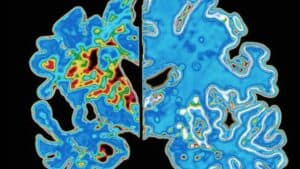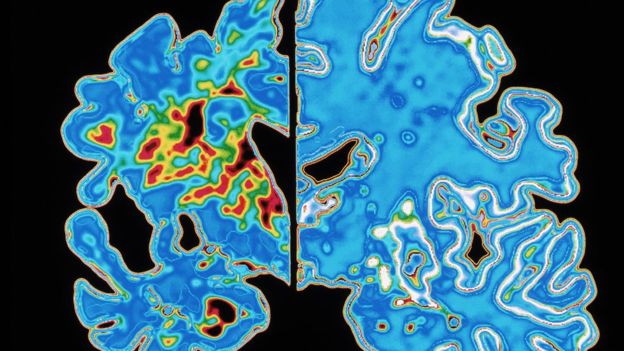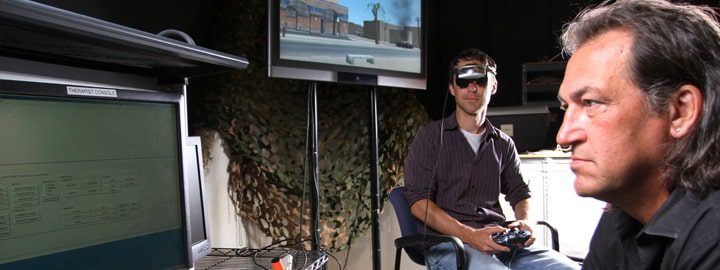Wearable Tech and health has been a focus of wearable vendors but virtual reality and health is a fascinating area. We’re not thinking here of the nausea issue in VR (which will be resolved) but of using virtual reality to predict and help people with dementia and other conditions. Take a look at the BBC story on using VR to help predict Alzheimer’s disease.
Alzheimer’s and Virtual Reality
Scientists at the German Centre for Neurodegenerative Diseases in Bonn are using virtual reality as a potential predictor of Alzheimer’s:
Our results could provide a new basic framework for preclinical research on Alzheimer’s disease and may provide a neurocognitive explanation of spatial disorientation in Alzheimer’s disease.
The study focuses on younger people who have a higher genetic risk so it’s not clear they will actually develop the condition. But for health conditions that affect our relation to the physical world, virtual reality could become a diagnostic tool.
Virtual Reality and health
The advantage is using virtual reality is that you don’t need to actually construct a physical space. And it’s easy to make quick adjustments to the spatial parameters depending on how people respond.
Think about the way we do eye exams. With a range of precision instruments, we’ve gone far beyond the classic “can you read the letters on the wall” approach. VR could do the same for spatial orientation. Can you see this object? Walk around that one? Navigate this maze? Now, try it again . . .
VR games and health
Alzheimer’s Australia Vic—a nonprofit society in Victoria, Australia collaborated with game designers at Opaque Multimedia to develop soothing virtual environments for suffers of dementia. The project on Pozible didn’t reach its funding goal but Opaque Multimedia has created a VR training simulation that puts you in the shoes of someone living with dementia:
Using game technology, the workshop shifts from an information session to an experiential session and the worker is then exposed to the lived experience of a person with dementia and then develops empathy for that person.
It’s one of the first projects combining virtual reality and gaming in healthcare for the elderly.
The future
Virtual reality has applications that go far beyond the entertainment and gaming focus in the popular press. Take a look at the work being done by the Medical Virtual Reality Group at the USC Institute for Creative Technologies. Bringing together professionals, game artists and social scientists, they are
using VR for mental health therapy, motor and cognitive skills rehabilitation, assessment, and clinical skills training.
VR can provide simulation training for healthcare providers (and perhaps even patients’ families) to serving as early warning systems for conditions we do not fully understand.
We’re not even scratching the surface of what we will do in Virtual Reality and health but these projects are a fascinating start.
Emory Craig is a writer, speaker, and consultant specializing in virtual reality (VR) and generative AI. With a rich background in art, new media, and higher education, he is a sought-after speaker at international conferences. Emory shares unique insights on innovation and collaborates with universities, nonprofits, businesses, and international organizations to develop transformative initiatives in XR, GenAI, and digital ethics. Passionate about harnessing the potential of cutting-edge technologies, he explores the ethical ramifications of blending the real with the virtual, sparking meaningful conversations about the future of human experience in an increasingly interconnected world.



